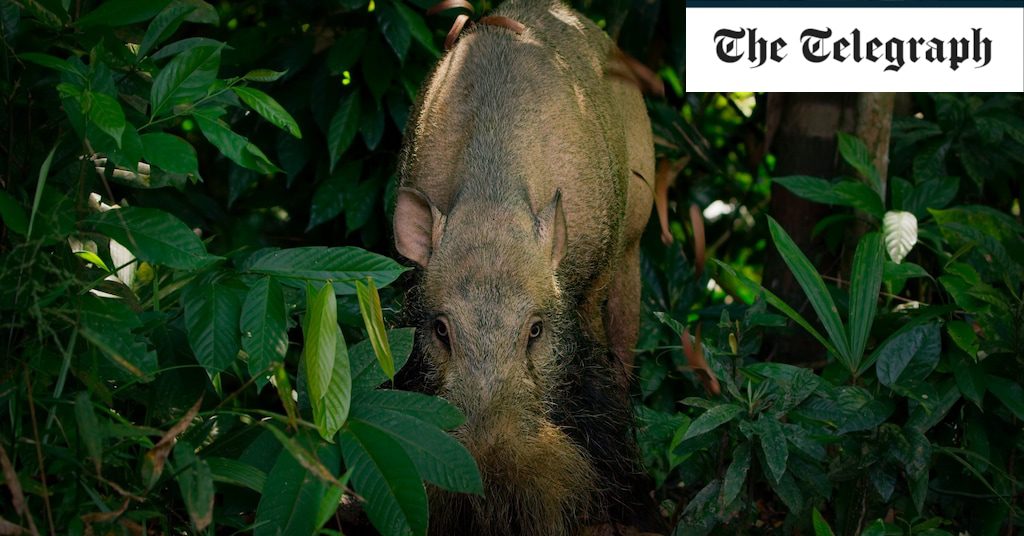
Crocodiles aren't the only ones losing a food source. Although Borneo's Muslim population does not consume pork, non-Muslim villages nestled in the rainforest relied on bearded pigs for as much as 80 percent of their protein intake.
“It was a big thing, because it is really in the culture – the local population has been hunting pigs for generations,” says Dr. Goossens, co-author of the letter to Science. These hunts are a social hub for indigenous people, although bans are still in effect today.
Dr. Goossens' collaborator Prof. Erik Meijaard, former chairman of the IUCN Wild Pigs Specialist Group, adds that ASF is both a food security and a poverty problem.
“If you take out 80 percent of the protein you normally consume and it is completely gone, the question is: what do you replace it with? In many cases this is not clear. So it is a health and nutrition problem for people in the forests,” he says.
Wake up call
And then there is the jungle itself. Wild pigs are often called the gardeners or engineers of the rainforest ecosystem because of their crucial role in turning the soil as they forage for worms, browse seedlings and disperse the seeds of fruits they have consumed.
“I don't think we can predict at this point what the long-term consequences will be if the number of forest trees is much lower, but there will certainly be changes in the way the forest works,” says Prof. Robert Ewers, professor of ecology at the University of California. Imperial College London, and co-author of the Nature publication.
But he adds that Borneo's experience should be a wake-up call. If ASF hits other islands where wild boars live – such as East Timor, the Philippines or Java and Sumatra in Indonesia – the population may never recover.
“When ASF hit Europe, the [wild] The pigs equilibrated there as ASF moved through the region… Pigs were usually wiped out in one location, but then re-entered from another location or rebuilt the populations afterwards,” says Prof. Ewers. “Borneo is probably big enough for a similar dynamic to happen.
“But with ASF moving across the smaller islands of Southeast Asia, there is no room for that dynamic, so I am extremely concerned about the future of the archipelago's endemic pig species.”
Dr. Goossens and Prof. Meijaard agreed. “Urgent research and interventions, with the participation of rural communities, should focus on preventing the spread of African swine fever to other regions where people depend on pigs,” they wrote in Science.
